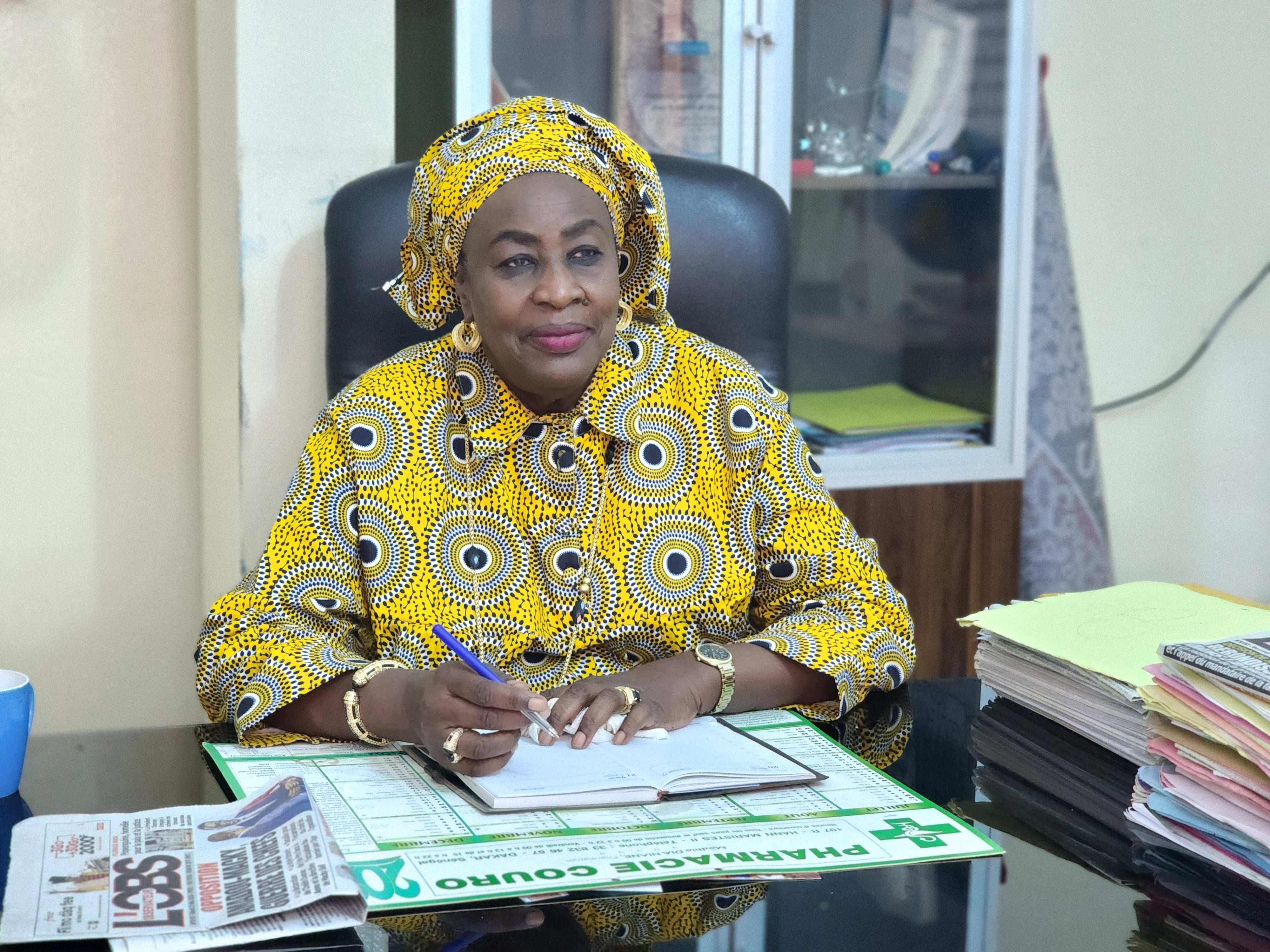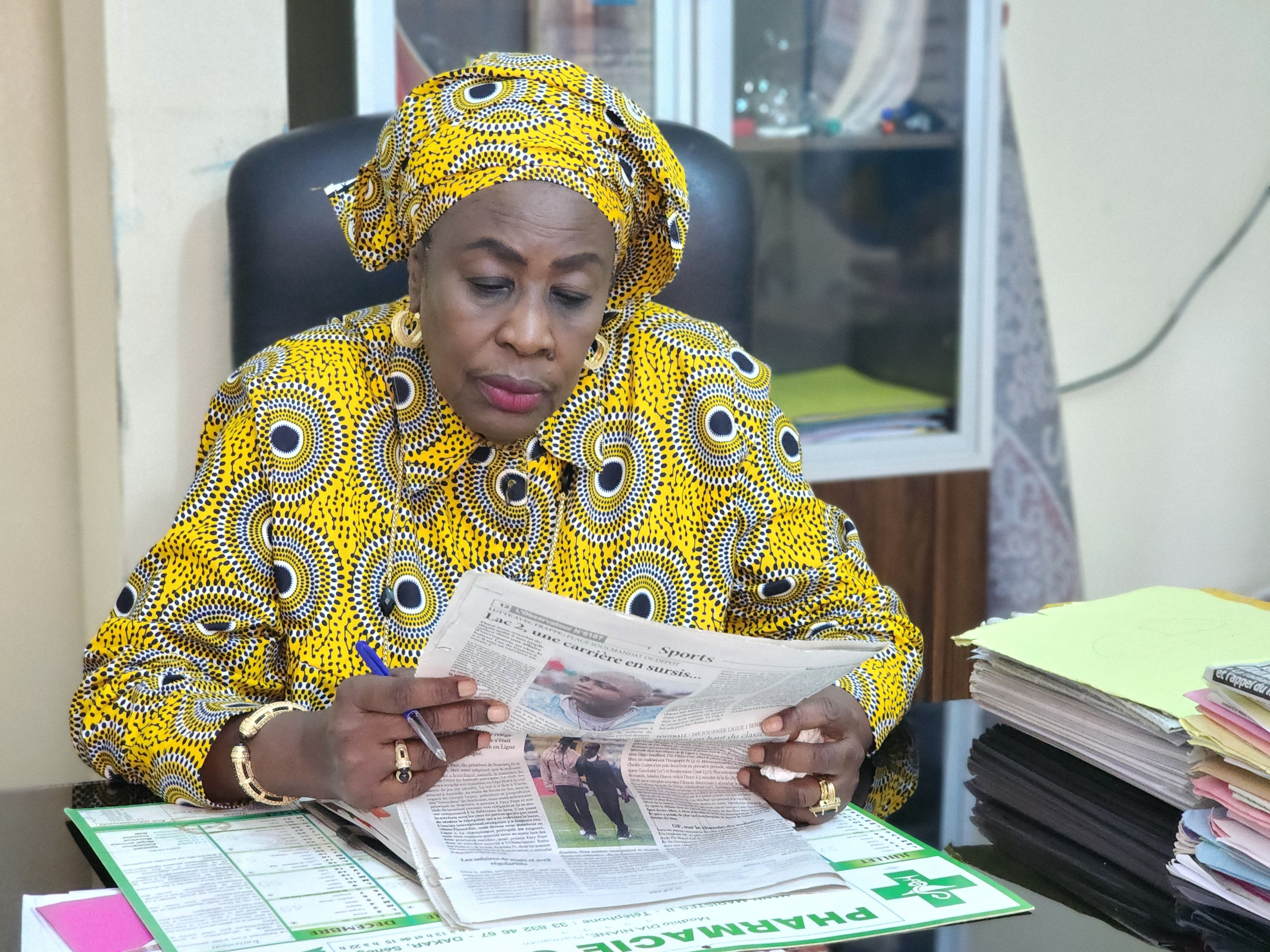
Empowering African Girls Through Education: Insights from Diago Diagne’s 30-year Journey as an Educator
On May 25th, African countries commemorate Africa Day, celebrating the African Union. Established in 1963 to mark the creation of the Pan-African Organization of the African Union (formerly known as OAU - Organization of African Unity), the 61st anniversary celebration will focus on education under the theme: ‘Educate an African fit for the 21st century: Building resilient education systems for increased access to inclusive, lifelong, quality, and relevant learning in Africa’. In honor of this day, Mrs. Diago Diagne, an educator and engaged woman leader (Regional President of UN Women’s civil society partner REFPSECO, the ECOWAS Women Peace and Security Network) reflects on the state of the African Educational System in the 21st. Century. In a candid interview, we sat with Mrs. Diagne in the yard of “Cours Awa & Khassim”, an elementary school she opened ten years ago, in the heart of Dakar, Senegal, to unveil the challenges, triumphs, and aspirations shaping the educational landscape and emphasize the great aspiration she has for young African girls, Africa’s future leaders.
African education system confronted to multifaceted challenges: Transformation is possible through a holistic approach including innovation.
Drawing on her 30 years of hands-on experience as a primary school owner and former teacher in West and Central African countries—including Senegal, Ethiopia, and Gabon—Mrs. Diagne sheds light on the multiple and diverse challenges plaguing education in Africa. These challenges range from inadequate infrastructure to political interference that hinder both access and quality, as well as social practices like child marriage. Yet, her voice resonates with unwavering optimism. She proposes a holistic approach that prioritizes stakeholder involvement, improved teacher training, and equitable governance. “Based on the model of Senegal, we can say that the education system in Africa is experiencing real challenges in numerous aspects… Many children are not enrolled in school, especially the ones living in rural areas, for a variety of reasons (isolation, lack of infrastructure, insecurity, inadequate facilities, civil status, cost of education, climate change, economic aspects, lack of access to good food, and absence of water, electricity, internet, etc.).”
Despite the numerous challenges, Mrs. Diagne remains hopeful. Her roadmap proposal for achieving educational excellence in Africa is a holistic approach that emphasizes stakeholder involvement at every level and offers continuous teacher training and infrastructural support. By prioritizing inclusivity, innovation, and accountability, she envisions a future where African education not only meets but exceeds international standards. Mrs. Diagne also emphasizes the importance of considering innovative tools, once the fundamentals have been implemented: “It is essential that innovative tools such as artificial intelligence be also considered, particularly in helping close the gaps and strengthening the African education system, but there are prerequisites which must first be addressed.” According to the experienced educator, addressing core issues like the availability of energy, ensuring the availability of suitable learning materials for all, and having nation-wide network coverage are essentials if we are to take full advantage of digital technology.
Bridging the gender divide: UN Women’s support makes a difference.

While acknowledging progress in girls' education, particularly in enrollment rates, Mrs. Diagne emphasizes the persistent socio-cultural norms that continue to hinder girls' education in some parts of West and Central Africa. Despite policies promoting inclusivity and awareness campaigns, socio-cultural practices like child marriage persist in the region. Recognizing education’s pivotal role in fostering awareness, Mrs. Diagne underscores the importance of early sensitization and expressed appreciation for UN Women’s efforts in informing and educating adolescent girls and boys about human rights and gender inequalities.
Drawing on the specific example of the commemorative activities of the 16 Days of Activism Against Gender-based Violence, Mrs. Diagne highlights the benefits derived from UN Women-sponsored partner activities with her school for the past three years, since 2021: “These activities provided opportunities to the audience made up of parents, community leaders, students, and teachers to exchange and recommend solutions. It was an occasion to engage the community, raise awareness but most importantly, build a system for broader community sensitization. Another benefit of such an event is that the students develop their leadership skills and reflect on future community engagement choices, particularly in defending the rights of survivors of gender-based violence.”
A Call to Action: Rise Up, Girls!

Mrs. Diagne's vision for the future is nothing short of transformative. She sees girls, particularly the educated ones, as a driving force behind a brighter Africa. The prominent figure in the west African region's educational sphere shared her vision for a world where women become engineers, doctors, pilots, and leaders, shaping Africa's destiny across various sectors. Her dream is that of a world where: “Girls, guided by their aptitudes and skills, pursue advanced studies in top schools to become Africa’s top managers across various fields: engineers, medical specialists, agronomists, senior technicians, artists, thinkers, intellectuals, airline pilots, naval captains, high authorities in defense and security forces, teachers, academics, researchers, business leaders, and captains of industry.” Mrs. Diagne emphasizes the urgent need for women to be fully included and participate at all levels of society, making meaningful contributions to the political, economic, and social development of African nations. Her message is a clarion call to action. She urges girls to embrace education and claim their rightful place in shaping a more equitable Africa and her vision extends beyond personal success; it's a vision for a continent defined by peace, stability, and shared prosperity. As Mrs. Diagne powerfully concludes, "Let's all rise to the challenge, girls! Let's fully occupy our place and play a decisive role in creating an Africa of equal opportunities for all."